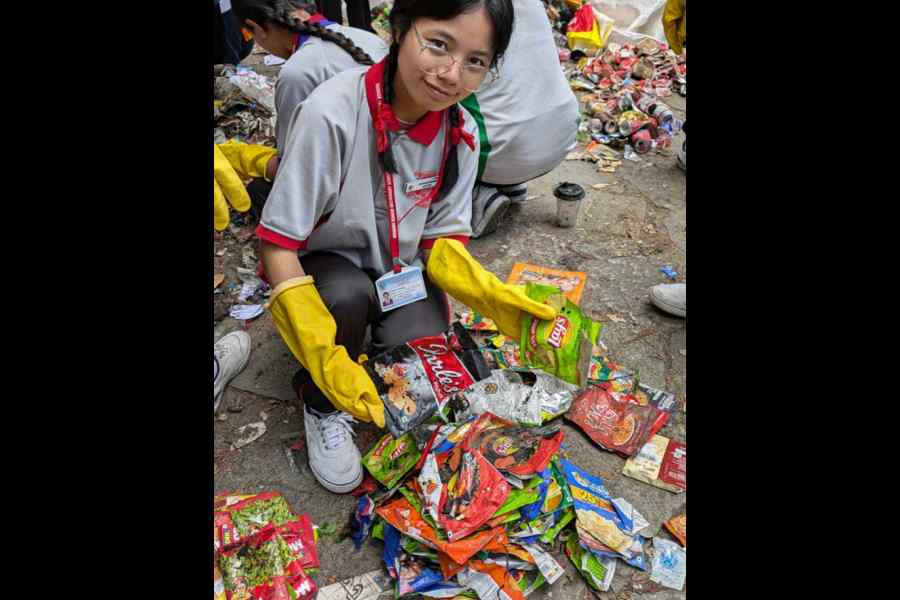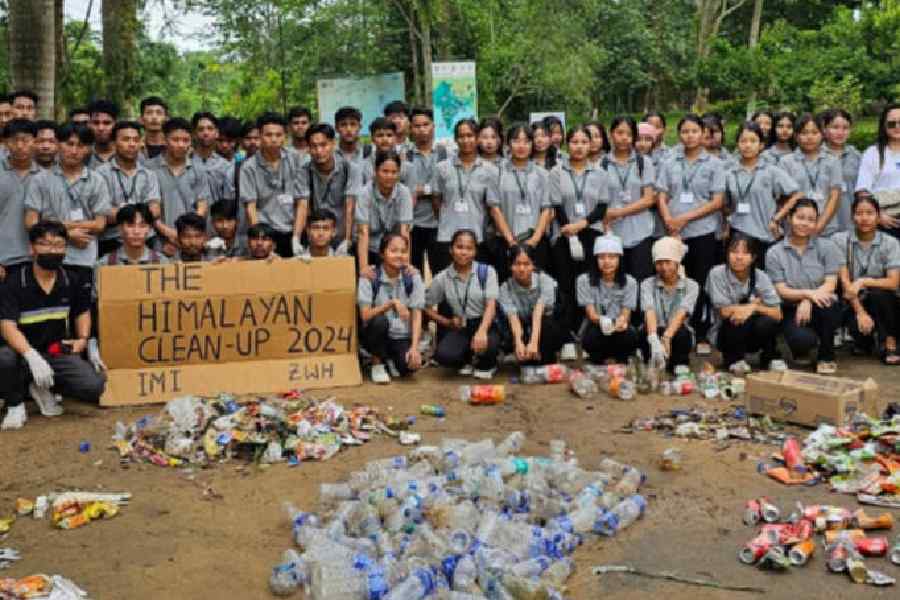A clean-up drive carried out in 450 sites across the Indian Himalayas by over 15,000 volunteers suggested that food packaging was the biggest polluter in the
mountains followed by smoking materials.
The Himalayan Cleanup (THC) was conducted by the Zero Waste Himalaya (ZHW) and the Integrated Mountain Initiative (IMI), a platform of non-government agencies, across nine Himalayan states and Union territories in association with more than 350 organisations and institutions, including government agencies, earlier this year.
The waste audit of the THC from 151 sites was released on Tuesday.
Of the 12 lakh waste items collected, more than 10 lakh were plastic accounting for 75.2 per cent of the refuse. “Of these, 84.2 per cent came from food packaging,” said Roshan Rai of the IMI.

Volunteer with collected plastic trash items The Telegraph
The food packaging items came in the form of food wrappers, beverage packs and
juice boxes.
“After food packaging, smoking materials were the second highest collected waste items. Cigarette packets and butts, gutka and tobacco packets were among the smoking materials,” said Rai.
Cigarette buds consisted of 17.9 per cent of the smoking material, followed by cigarette boxes which accounted for 15.9 per cent of the smoking garbage.
Among the personal care products, shampoo sachets were largely found, followed by sanitary napkins and diapers.
The drive was conducted mainly in Ladakh, Sikkim, Darjeeling, Kalimpong, Arunachal Pradesh, Nagaland, Himachal Pradesh, Uttarakhand and Manipur.
The Sikkim government, Ladakh Autonomous Hill Council, army stations in various locations and several local bodies participated in the campaign.
“The Himalayan Cleanup is a rallying point for voices from the mountains to be heard and aligns with ongoing national and global movements on waste,” said Rai.
The team recognises that cleanup is never a complete solution to the waste crisis. “However, it is surely a good place to start on a sustainable zero waste pathway at an individual as well as at an institutional level,” said Rai.
In the past, the IMI had placed its findings on waste before the Centre and local bodies to give them a better perspective of the challenges the mountains have faced.
Many hotels in the mountains have also stopped providing shampoo sachets to their guests or minimising the use of packaging material following sustained campaigns by environmental groups.
“The initiative has brought countless people from across the mountains to rally for a common cause as our mountains deserve better. The focus however has to shift to more systemic solutions,” said Rai.











